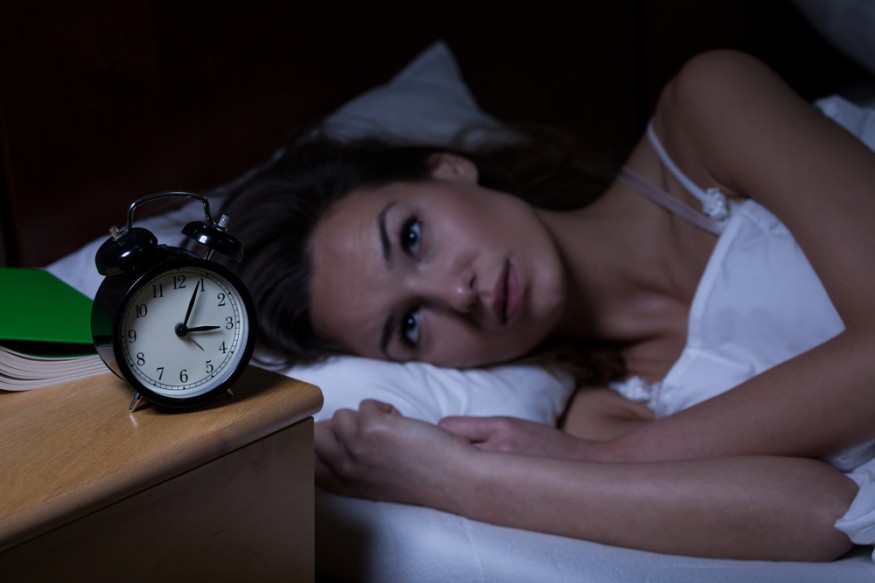The pandemic has taken a toll on many people's welfare, even though they have never contracted COVID-19.
Insomnia, or the inability to fall and remain asleep, is one of the most common health problems during pandemics. America's State of Mind said the impacts on sleep have become so severe that prescriptions for sleep drugs in the United States increased by 14.8 percent in the first weeks of the shutdown in 2020.
Although certain COVID survivors with long-term symptoms do suffer from insomnia, the Centers for Disease Control and Prevention (CDC) does not mention insomnia as a typical COVID-19 symptom. Rather, pandemic-related stress is to blame for many of the recent cases of insomnia.
"At least at some point there is that uncertainty of whether you are going to do well, and that leads to anxiety that can cause insomnia," David Chancellor told News4SanAntonio.

What are the Signs and Symptoms of Insomnia?
Insomnia is a type of sleep disorder in which a person does not get enough sleep. In this case, a patient's sleep period is also disturbed, in addition to their duration. Mayo Clinic shared some of the signs and symptoms of insomnia. These are:
- Had trouble getting asleep at night
- Getting up in the middle of the night
- Getting up way too early
- Despite a night's sleep, you don't feel well-rested.
- Tiredness or sleepiness through the day
- Irritability, sadness, or fear are all symptoms of irritability.
- Paying attention, concentrating on assignments, or recalling is difficult.
- Missions or injuries have increased.
- Constant concerns oversleep
Why people face insomnia post COVID?
There are several reasons why people have insomnia or sleep problems by using Covid. Anxiety, emotional fatigue, or loneliness can be caused by being alone for weeks or being hospitalized for a critical condition.
Aside from that, taking a nap during the day makes it difficult to fall asleep at night. Dr. Anant Mohan, Head of Pulmonary Medicine at AIIMS in India, told Jargan English that steroid use causes sleeping problems.
How to Treat Post-COVID-19 Insomnia
It can take some time to fully recover from the side effects of Covid-related complications. It is important to maintain calm and obey the doctor's instructions. Meanwhile, experts told Healthline that conditions that trigger sleep loss may be relaxed in the following ways.
Mindfulness Meditation
The practice of mindfulness meditation entails sitting silently and breathing slowly and steadily. When your breath, body, emotions, feelings, and experiences rise and fall, you observe them.
There are several health advantages of mindfulness therapy that go hand-in-hand with a healthier lifestyle that promotes proper sleep. It's said to help with stress relief, concentration, and immunity.
You are free to meditate as much as you like. If you don't have time for a longer workout, schedule 15 minutes in the morning or evening. To keep inspired, consider attending a mediation community once a week. You might even try a guided meditation on the internet.
Meditation is a safe exercise to engage in, but it can elicit intense feelings. Discontinue the exercise if you believe it is causing you more anxiety or turmoil.
Mantra Repetition
Yoga has been discovered to have a beneficial effect on sleep efficiency. Yoga has been shown to reduce stress, enhance physical function, and increase mental concentration.
Choose a style that emphasizes moving meditation or breath practice rather than strenuous body motions. You will remain present and centered by moving slowly and deliberately. Yin and restorative yoga are also excellent choices.
Per week, try to do a few longer sessions and at least 20 minutes of self-practice. Before going to bed, practice the postures to help you calm and unwind.
Don't pull yourself into a stance if it doesn't feel good. It is possible that forcing it will result in injuries. It's crucial to do what feels right for you and your body, which differs from person to person.
Exercise
Exercise is beneficial to one's physical wellbeing. It will improve your mood, give you more stamina, help you lose weight, and help you sleep better.
Reasonable exercise for at least 20 minutes a day is needed to reap these benefits. A couple of days per week, have either physical conditioning or vigorous aerobic exercise. Determine the time of day that ideally meets your needs and has the most beneficial effect on your sleep.
Take into account your physical state and work out accordingly. Physical disability is a possibility, but it is normally avoidable if you prepare carefully.
Massage
Massage therapy helps those with anxiety sleep well and perform well throughout the day. It may also help with pain, anxiety, and depression.
Self-massage is an alternative if skilled massage is not available. You may also benefit from having a massage from a partner or friend. Allow your mind to drift and dwell on the emotions and sensations of touch. Look up hints and tactics on the internet.
If you have any severe health conditions that can prevent you from reaping the benefits, see your doctor. If you have delicate skin, try a cream or oil on a small skin patch before using it.
Check out more news and information on COVID-19 on Science Times.
© 2025 ScienceTimes.com All rights reserved. Do not reproduce without permission. The window to the world of Science Times.











